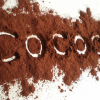A very nice response, so I'll just provide some opinions and whatnot.
I would like to point out that many low-dopamine related illnesses such as ADHD and (According to the other thread) AvPD do not include anticipatory anhedonia as depicted by the OP.
Medievil classifies AvPD as a disorder related to low DA. This is a suggestion on his part and may be to some extent true. It is not, however, a well-accepted conclusion in the literature, at least as far as I've seen. Personality disorders are generally very difficult to treat and related to, surprise, someone's personality, which tends to be largely fixed from adulthood on. They generally respond quite poorly to meds - medications, even more so than with other types of disorders, tend to be palliative. So I do not think personality disorders are very useful for assessing physiology.
As far as ADHD, that may be true, but it may not. Many people report co-occurrence of anticipatory anhedonia (I'll call it AA from now on) and ADHD-like symptoms. For me, AA coincides with some mild ADHD-like symptoms. Attention is more difficult to maintain when items appear uninteresting.
Edit: thanks to animal for the post. In that case, this makes sense. If we have a broader issue in DA signalling, it would indeed manifest itself in reduced PFC DA concentrations and thus ADHD-like symptoms. But one could have issues exclusively with PFC DA signalling without corresponding deficits in anicipatory pleasure, which may have more to do with subcortical structures like the nACC. I'm just speculating here - please correct me if you have any input or ideas.
Certainly, it seems ADHD can exist without AA, but it can also exist with AA, and I strongly suspect that the prevalence of AA in populations with ADHD is higher than that of the general population.
In fact, it seems to me like there are several stages, more than just Anticipation and Consummation.
[snip]
The second, I think is mostly caused by dopamine.
The third, I agree is probably an opioid problem.
[snip]
It seems to me like the first stage is where most of you are having trouble, and I don't think that is primarily a dopamine problem. Either that, or I am misunderstanding the usage of anticipatory.
I think this a very interesting division, although I think the first and second stages are somewhat entangled (perhaps the second and third as well, for the matter, via cascading effects of DA on opioids). I think fantasizing is largely cognitive. I think that, to some degree, people with AA may be able to fantasize. I'm not really a good example since my issue is pretty mild, but I do think I can do this to some degree, even if just from a cognitive perspective. And yet I highly doubt that it is overactive - perhaps since I cognitively am not big on fantasizing in the long term. There's a difference between looking forward to something exciting tomorrow and not enjoying your life since you're obsessed with being rich in ten years. I think some of the issue may lie here, but I really doubt this is the crux of AA - I have much larger deficits in your second phase.
Also, although I think fantasizing behavior is largely cognitive, there may be some dopaminergic connection. People experiencing mania are often very goal-centric and start up wild, risky, and flawed ventures. And mania is associated with excessive DA signalling and is thus often treated with antipsychotics. On the other hand, anticonvulsants, which decrease activity more broadly also work, which complicates things. (And there's lithium, which is hopelessly complex.) In any case, I think this suggests that fantasizing behavior is largely cognitive, but with perhaps some dopaminergic assistance.
The second phase is where my deficit is, and based on the other anecdotal evidence I've heard, I think it is where others' deficits are as well. There's a lack of drive to actually do things and continue them. The terminology is quite confusing here. I personally would say that, at least in my experience, there's a deficit in the salience of stimuli. Meaning, essentially, that future events are not exciting or enticing to a large degree. But that does not mean that I do not plan future events - I do all the time - and somewhat strangely, since I then do not really look forward to them, although I am able to minimize risks by planning, my main motivation for that behavior. Perhaps someone with stronger AA would have a larger deficit in planning behaviors.
The third stage is obviously purely consummatory and not really relevant for AA.
The first is more complicated, and I don't really know what causes it. It does seem to be overactive in ADHD and AvPD, though. This, in combination with the fact that piractam(which upregulates NMDA receptors) helps me with it, and that glutamate sensitivity is inverse to dopamine makes me think that maybe it is at least partially caused by low glutamate sensitivity. This would compound on why adderall is helpful to ADD-PI patients. Not only does it increase motivation through the dopamine, but it draws them out of daydreaming by desensitizing their NMDAs, making them more "in the now" because it reduces the likelihood that they will fantasize.
That's an interesting idea. The thing is, if we're looking for NMDA receptor desenitization, we would expect response to psychostimulants to exhibit a delayed therapeutic response. But we do not see that - response is maximized on the first dose and declines as tolerance builds. Eventually, you have a relatively stable therapeutic effect with little euphoria.
I'm inclined to view things in a somewhat reversed way. We know PCP, an NMDA antagonist, causes schizophrenia-like symptoms, both positive and negative, along with a dissociative, dream-like state. We know that schizophrenia likely involves NMDA hypofunction and responds, at least partially to pro-NMDA therapies. So when we increase glutamatergic activity, we get, presumably, the opposite of dissociation. Some sort of intensely present, highly embodied state.
And we know glutamate activity is required to "allow" opioid-modulated consummatory pleasure - I posted some references on that claim a while back in this thread.
I think that Medievil said this in another post, but I don't think dopamine has much to do with pleasure directly. It is more of a mediator between fantasy and pleasure. So, more dopamine results in more pleasure, but only because it allows change of panning to consummation.
I definitely agree with you on that point. There's tons and tons of evidence that DA does not modulate pleasure directly at this point, and it's sad that there's still a tendency to teach DA = pleasure.
DA is important for learning, reinforcement, and motivation, and DA release causes pleasure by triggering opioid release, but it is not inherently pleasurable (ie if you have a trial where you coadminister opioid agonists, amphetamine is not euphoric).
DA has been shown to be largely irrelevant in consummatory pleasure. However, opioid activity does cause DA release - thus the addictive qualities of opioids. And DA release causes reward-seeking behaviors, which wind up causing more opioid release when they are successful.
Edited by Dissolvedissolve, 25 December 2012 - 07:31 AM.




















































